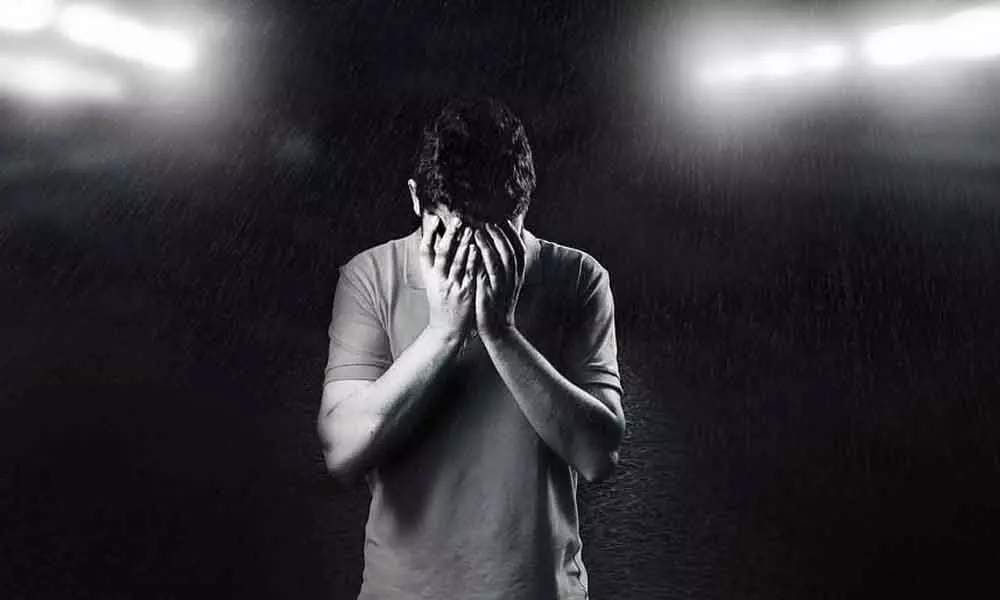Covid causing mental health crisis as well

The recent suicide by a person on suspicion that he had contracted Coronavirus merely points to the extent of apprehensions and anxieties gripping the society at large
Hyderabad: The recent suicide by a person on suspicion that he had contracted Coronavirus merely points to the extent of apprehensions and anxieties gripping the society at large.
The outbreak of the much dreaded virus and the paralysing lockdown effect for over a month seems to be taking toll on the mental state of people of all ages and classes.
Prof Anupama, Department of Psychology, OU, observes, "The pandemic is clearly having a major social and psychological impact on the citizens, such as increasing unemployment, separating families and multiple other changes that are spawning anxiety, depression and self-harm."
She stresses that the recent suicide should ring alarm bells to governments because as an individual a person is sensitive and is at the brink of breaking down due to the ongoing pandemic. Certain conditions such as asthma will aggravate their concerns and cause fatal stress.
Diya, a consultant psychologist from a private firm, notes there is a greater role for governments in allaying apprehensions and baseless assumptions: "There are researches going around in the world since the pandemic began and according to most of them, people are slipping into depression only with the thought of stepping out of their homes. They fear they might test positive for the deadly virus.
These fears shall be addressed on priority by the governments."A research programme was conducted by psychological scientists in UK and was published in Lancet Psychiatry, which states that it is also possible that there will be an impact on mental health, more specifically in Covid patients, in ways that are linked to the brain and the body's response to viral infection, informs Divya.
According to the report, "The team stress that the research programme could not only provide insights into how to tackle outbreaks and ramifications of Covid-19 in the future, but could help in the short-term – for example in finding the best way to communicate public health measures and change behaviours without triggering distress, and repurposing digital therapies that can be rapidly scaled up and delivered to those in need."
Prof Rory O'Connor from the University of Glasgow, a co-author of the study, noted in the Lancet Psychiatry article: "If we look at the SARS outbreak in 2003, we know there is evidence there that there were increased rates of anxiety, increased rates of depression and post-traumatic stress and, in some groups, there were also increased rates of suicide."
















